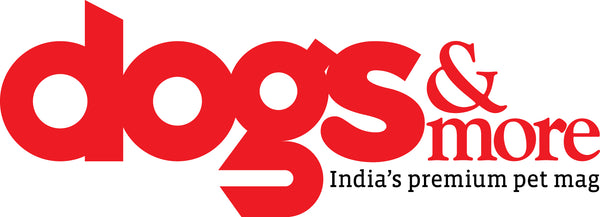“Trust your gut, it’s never wrong” was said by someone wise and we agree to that totally. Because gut microbiome aka gut bacteria never lie. And this is true for our pets too. A dog’s digestive system speaks volumes about their health. Low immunity, indigestion, weakness etc can be attributed to poor gut microbe health.
This brings us to a question, what exactly is ‘gut health’ & why is it important?
Gut
‘Gut’ is simply another name for the intestine, small & large. A dog’s digestive system is composed of the gastrointestinal tract. It includes all the organs that participate in the digestion process. This means that the mouth, salivary glands, food pipe, stomach, liver, pancreas, small intestine, large intestine & excretory system are all a part of the gastrointestinal tract.
The gut contains multiple types of good bacteria known as ‘gut flora’, ‘gut microbiome’ or ‘gut bacteria.’ The gut microbes are responsible for maintaining digestion, immunity, bowel movement & overall health of a dog.
Why is it important?
A healthy gut is home to good bacteria. It will keep your dog’s digestive system in check & you, worry-free! Maintaining the count of the gut microbiome is essential for a lot of reasons. When left unchecked, it can lead to severe inflammation. Your dog’s appetite will decrease, less food intake will result in weakness, instances of indigestion will increase & your dog’s health will take a hit.
How to examine gut health?
To examine your dog’s gut microbiome, a stool test is necessary. This test is known as the ‘Microbiome Gut Health Test.’ In this test, your dog’s stools are examined to determine the type & amount of good bacteria present in their gut.
Some commonly found good gut bacterias are -
- Lactobacillus acidophilus
- Lactobacillus casei
- Bifidobacterium breve
- Enterococcus faecium
- Bifidobacterium lactis
Your dog’s microbiome result will be compared to a similar healthy dog’s microbiome results. It is an easy way to identify the problems & provide solutions to improve your dog’s gut flora.
What to do after the examination?
After the examination, your veterinarian will provide you with the results & a comparison of the bacteria. Based on the results, a suitable diet will be recommended. This means you can be asked to remove certain foods or add specific items to your dog’s diet. If there is a microbe imbalance, your veterinarian will suggest including ‘probiotics.’
Probiotics are live bacteria found naturally in a dog’s gut. But sometimes due to imbalance, probiotics need to be added externally, through their food. It can be in the form of powder, pills or a simple quick-dissolving strip.
A probiotic strip is an easy way to feed your dog or cat a pill, without actually giving the pill. It is a more convenient & hassle-free method when compared to giving pills! Simply place the probiotic strip in their mouth & it will melt in no time. Choose a probiotic strip that has at least 5 billion CFU (colony-forming units). The higher the number, the better the results!
What should be the ideal diet?
If your dog has a microbiome imbalance, including natural sources of pro and prebiotics in their diet will be an ideal solution.
- Homemade curd
- Buttermilk
- Sweet potato
- Banana
- Oats
- Fermented veggies like carrot, beetroot, broccoli, green beans
- Pumpkin
- Blueberries
These foods contain wholesome amounts of probiotics and are safe for your dog’s consumption.
If you are still confused about how to feed, the quantity & need help with alternatives, opt for customized diet consultations. Based on your dog’s gut results, a diet will be curated to cater to their needs, nutritional requirements & health. When followed religiously, a customized diet plan will work wonders for your dog’s health!
If you are a working pet parent & preparing probiotic-rich homemade food is difficult, we have a solution. You can try Wiggles Wet Food for dogs. It is a healthy & balanced mix of fresh chicken, vegetables & contains prebiotics & antioxidants. Prebiotics are nutrients required for probiotics to grow in the gut.
Digestive enzymes for dogs are another great option to boost the count of probiotics. These enzymes boost immunity & improve digestion. Our in-house veterinarians suggest Furliv™ Liver Tonic & Appetizer, Wimmuno+™ Immunity Booster & Wicoat Coat Supplement Liquid to boost immunity in dogs.
The diet can also be supplemented with healthy, prebiotic-rich treats like Wiggles Peanut Butter & Barkstix (in honey chicken & berry blast flavors.) This way you can give them healthy treats that will not only pass their taste test but will also help the good gut bacteria.
*Dogs can be allergic to peanut butter. If you are not sure, look for signs of discomfort, skin rash, diarrhea, vomiting etc after they have consumed peanut butter. Alternatively, please get them tested for any allergies.
What needs to be removed?
Now that we know what needs to be added, it is also important to know what must be removed from your dog’s diet.
These are some foods that can upset your dog’s stomach & cause digestive problems -
- Processed foods
- Dog food loaded with fillers, GMO, artificial flavors & colors
- Sugary food like xylitol or chocolate
- Spoiled food
Since each dog is different, the veterinarian will be able to give you a list of foods that are causing digestive problems in your dog.
Over-the-counter pain relief medicines can destroy gut microbes too. With increased intake, they can completely harm the good bacteria & make the environment hostile for them to regrow. Excessive intake of antibiotics can also harm the gut flora in the long run. Always consult your veterinarian for prescription-based antibiotics only. Prolonged consumption of antibiotics can lead to antibiotic resistance.
If your pet is suffering from acute pain due to old age, fracture, injury, arthritis or skin infections, ask your veterinarian for alternative natural therapy. CannawPaw™ is an amazing all-natural pain relief therapy oil for pets. It is 100% natural, completely safe for topical application & has no side effects at all!
Get rid of bad bacteria like E.coli from the gut. It is one of the most common bacterial overgrowths. Its presence in the gut causes acute imbalance leading to inflammation. Instead of using antibiotics, ask your veterinarian for ‘phage therapy.’
It includes gut maintenance capsules that include ‘phages’ that can kill E.coli. This therapy is another great alternative to antibiotics & is completely safe for dogs.
How gut health affects the overall health of pets?
Gut health is important as your dog’s core health and well-being depends on it. And due to a rise in antibiotics & easy accessibility, many dogs have a compromised gut health. Some signs of a flourishing gut microbiome are -
- Good appetite
- Consistency in stool
- Fewer cases of indigestion
- Active & energetic lifestyle
- Shiny coat & fur
If your dog has these above-mentioned signs, it is safe to assume that their gut microbes are living happily in their gastrointestinal tract!
If you believe your dog’s gut health has also been compromised, please contact us on +91 8431620000 & our in-house veterinarians will assist you! Remember, we are just one call away!
*Disclaimer: This blog is vet-approved and includes original content which is compiled after thorough research and authenticity by our in-house team of vets and content experts. It is always advisable to consult a veterinarian before you try any products, pet food or any kind of treatment/medicines on your pets, as each pet is unique and will respond differently.



















